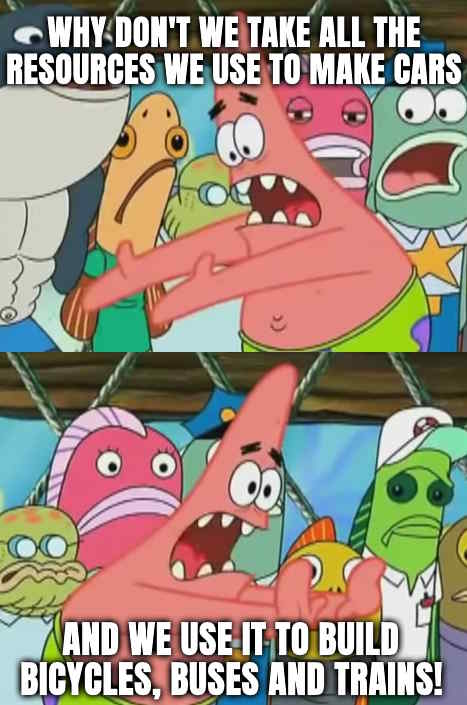Fuck Cars
A place to discuss problems of car centric infrastructure or how it hurts us all. Let's explore the bad world of Cars!
Rules
1. Be Civil
You may not agree on ideas, but please do not be needlessly rude or insulting to other people in this community.
2. No hate speech
Don't discriminate or disparage people on the basis of sex, gender, race, ethnicity, nationality, religion, or sexuality.
3. Don't harass people
Don't follow people you disagree with into multiple threads or into PMs to insult, disparage, or otherwise attack them. And certainly don't doxx any non-public figures.
4. Stay on topic
This community is about cars, their externalities in society, car-dependency, and solutions to these.
5. No reposts
Do not repost content that has already been posted in this community.
Moderator discretion will be used to judge reports with regard to the above rules.
Posting Guidelines
In the absence of a flair system on lemmy yet, let’s try to make it easier to scan through posts by type in here by using tags:
- [meta] for discussions/suggestions about this community itself
- [article] for news articles
- [blog] for any blog-style content
- [video] for video resources
- [academic] for academic studies and sources
- [discussion] for text post questions, rants, and/or discussions
- [meme] for memes
- [image] for any non-meme images
- [misc] for anything that doesn’t fall cleanly into any of the other categories
Recommended communities:
view the rest of the comments

I like the concept of 15 minute cities/suburbs. You can get anywhere you need within 15 minutes, whether by public transport, bike, walking or car.
Isn't the point of a 15 minute city that you can get anywhere within 15 minutes without a car?
(By the way, from a European standpoint it sounds really funny that 15 minute cities are not a reality for you. Like, why would you ever build a city differently in the first place?)
There’s an few distinctions about American culture as it relates to car culture.
America had/has a lot of land
Much of this is/was vastly underdeveloped right outside of urban hubs, unlike Europe/related which benefits from a tighter interconnected network of cities that more immediately benefit from mass transit systems
In the US post-WWII middle class and privileged were often sold an idea of peaceful suburban lifestyles away from urbanized areas
Car manufacturers marketed this successfully as a way to encourage families away from city life and thus build a more solid reliance on their vehicles
City planning was therefore often built around a suburban-city sprawl rather than a cohesive urban community designed around efficiency